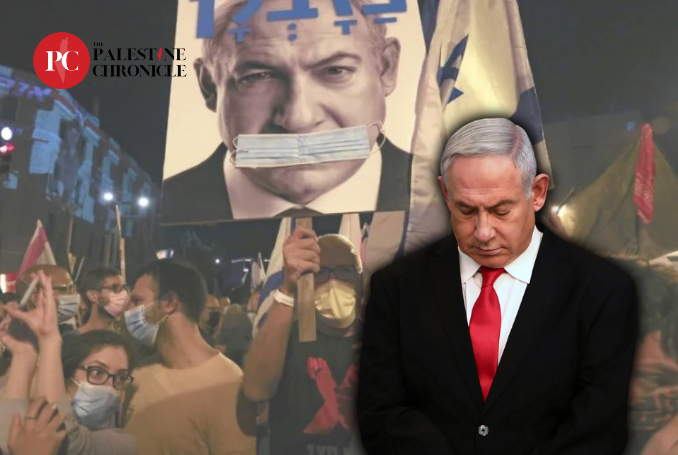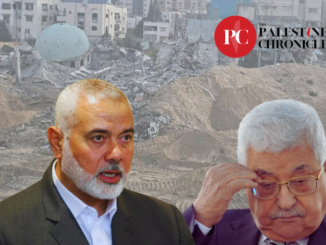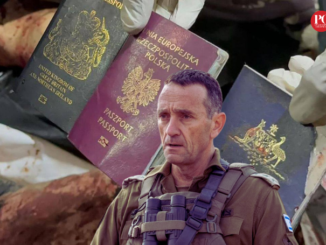
Under Israeli law, Netanyahu is not required to resign unless convicted by the Supreme Court, a process that could take several months.
Israeli Prime Minister Benjamin Netanyahu testified before the Tel Aviv District Court on the first day of his corruption trial on Tuesday after an Israeli court rejected a last-ditch request by 12 Cabinet ministers to postpone the trial, Israeli media said.
With Netanyahu facing charges of bribery, fraud and breach of trust, the cabinet ministers, including far-right Finance Minister Bezalel Smotrich, sent a letter to Attorney General Gali Baharav-Miara requesting the delay, the Anadolu news agency reported, citing Israeli media.
Reports said the current “exceptional security situation” to have his trial postponed, in reference to Sunday’s fall of Syrian President Bashar Assad after anti-regime groups captured the capital Damascus on Sunday.
The letter claimed that Netanyahu’s court appearance would harm Israel’s national interests.
Israel’s Channel 14 reported on Monday evening that the court rejected their request.
‘Ocean of Absurdness’
On Tuesday, Netanyahu told the court he had “waited eight years for this moment, to say the truth as I remember it, which is important for justice.”
The 75-year-old also said he was “leading the country through a seven-front war. And I think the two can be done in parallel.”
He called the charges against him “an ocean of absurdness” and “total lies.”
Majority of Israelis Support Netanyahu Court Ruling, Want Ben-Gvir Out – New Poll
According to a Reuters report, Netanyahu denies any wrongdoing in three cases involving “gifts from millionaire friends and for allegedly seeking regulatory favors for media tycoons in return for favorable news coverage.”
“Had I wanted good coverage all I would have had to have done would be to signal toward a two-state solution. … Had I moved two steps to the left I would have been hailed,” he reportedly said.
‘Using War to Evade Trial’
A few dozen protesters gathered outside the court with some demanding that the prime minister do more to secure a deal to release Israeli captives. Others supported Netanyahu and demanded he not be prosecuted, reported Anadolu.
Last month, the court rejected an earlier request to delay Netanyahu’s testimony for 10 weeks due to his preoccupation with the current wars in Gaza and Lebanon. Netanyahu’s trial began in May 2020.
Corruption Trial – Israeli Court Rejects Netanyahu’s Request for Delay in Case
Under Israeli law, he is not required to resign unless convicted by the Supreme Court, a process that could take several months.
Opposition leaders accuse Netanyahu of escalating the Gaza war to evade his trial and to achieve a victory that could protect him from conviction and keep him in power.
Ongoing Genocide
Flouting a UN Security Council resolution demanding an immediate ceasefire, Israel has faced international condemnation amid its continued brutal offensive on Gaza.
Currently on trial before the International Court of Justice for genocide against Palestinians, Israel has been waging a devastating war on Gaza since October 7.
LIVE BLOG: Massacres in Nuseirat, Rafah, Jabaliya | Bloodiest Year for Journalists – Day 431
According to Gaza’s Ministry of Health, 44,758 Palestinians have, to date, been killed, and 106,134 wounded. Moreover, at least 11,000 people are unaccounted for, presumed dead under the rubble of their homes throughout the Strip.
Israel says that 1,200 soldiers and civilians were killed during the Al-Aqsa Flood Operation on October 7. Israeli media published reports suggesting that many Israelis were killed on that day by ‘friendly fire’.
Famine and Displacement
Palestinian and international organizations say that the majority of those killed and wounded are women and children.
The Israeli war has resulted in an acute famine, mostly in northern Gaza, resulting in the death of many Palestinians, mostly children.
The Israeli aggression has also resulted in the forceful displacement of nearly two million people from all over the Gaza Strip, with the vast majority of the displaced forced into the densely crowded southern city of Rafah near the border with Egypt – in what has become Palestine’s largest mass exodus since the 1948 Nakba.
Later in the war, hundreds of thousands of Palestinians began moving from the south to central Gaza in a constant search for safety.
(Anadolu, PC)










Be the first to comment